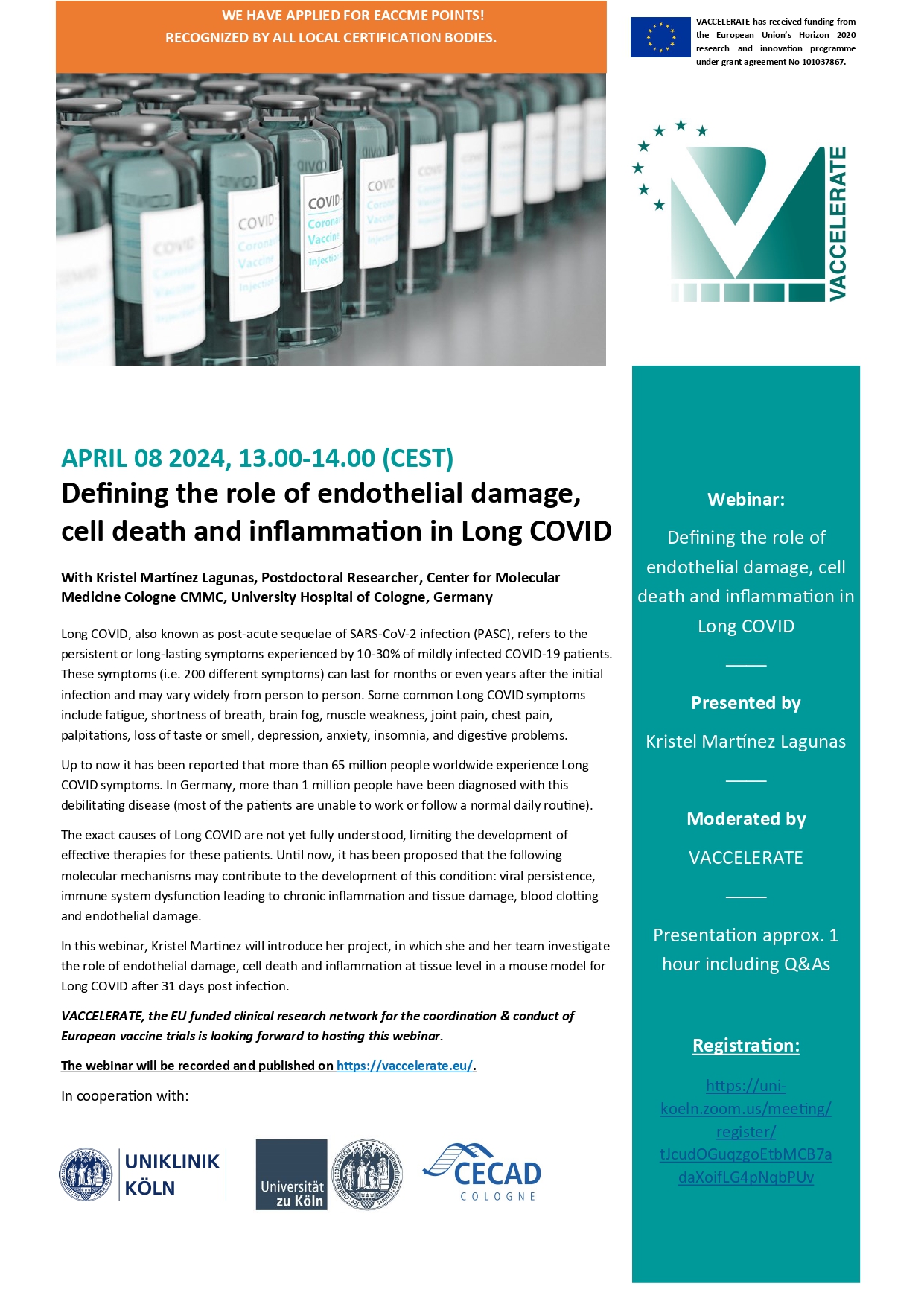
Defining the role of endothelial damage, cell death and inflammation in Long COVID
With Kristel Martínez Lagunas, Postdoctoral Researcher, Center for Molecular Medicine Cologne CMMC, University Hospital of Cologne, Germany
Long COVID, also known as post-acute sequelae of SARS-CoV-2 infection (PASC), refers to the persistent or long-lasting symptoms experienced by 10-30% of mildly infected COVID-19 patients. These symptoms (i.e. 200 different symptoms) can last for months or even years after the initial infection and may vary widely from person to person. Some common Long COVID symptoms include fatigue, shortness of breath, brain fog, muscle weakness, joint pain, chest pain, palpitations, loss of taste or smell, depression, anxiety, insomnia, and digestive problems.
Up to now it has been reported that more than 65 million people worldwide experience Long COVID symptoms. In Germany, more than 1 million people have been diagnosed with this debilitating disease (most of the patients are unable to work or follow a normal daily routine).
The exact causes of Long COVID are not yet fully understood, limiting the development of effective therapies for these patients. Until now, it has been proposed that the following molecular mechanisms may contribute to the development of this condition: viral persistence, immune system dysfunction leading to chronic inflammation and tissue damage, blood clotting and endothelial damage.
In this webinar, Kristel Martinez will introduce her project, in which she and her team investigate the role of endothelial damage, cell death and inflammation at tissue level in a mouse model for Long COVID after 31 days post infection.